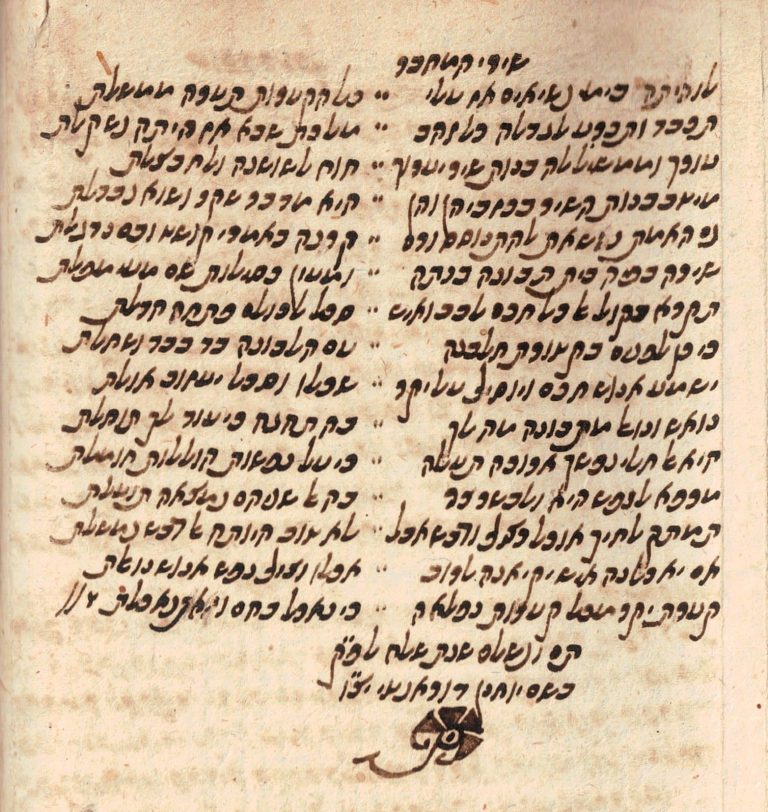Medieval Hebrew Poetry
In 1928, a manuscript arrived from Baghdad to Europe, drawing the attention of scholars and collectors alike. The manuscript – a plain looking codex – did nothint at the hidden treasures within. Written around the end of the 16th century in Egypt, the manuscript included over 3,000 medieval Hebrew poems, many of them previously unknown. Among the poems were the entire Diwans (collected poems) of the great Medieval Hebrew Poets of Spain, including the only publication of Moses ibn Ezra’s complete Diwan. The poet H.N. Bialik tried to purchase the manuscript as part of his “Kinus” (כינוס) project. In the end, it was Schocken who purchased the manuscript, naming it “Schocken 37”.
Schocken’s purchase was motivated by his vision of reviving Jewish culture by rediscovering its past. His interest in Medieval Hebrew poetry was aroused by the writing of such scholars and critics as Zunz, Dukes and Luzzatto. Schocken commissioned researchers to curate and translate the newly discovered poems into German and Hebrew. The German version of this treasured body of literature was published in several volumes by Schocken Verlag, in Berlin. The Hebrew version was published in seven volumes by the Schocken Institute for Hebrew Poetry. Critical editions were also published in Hebrew by the Schocken Publishing company in Tel Aviv. Among these were the complete Diwans of Shlomo ibn Gabirol and Moses ibn Ezra. In an attempt to make the material accessible to a wider audience, Schocken also published the poems in a weekly column that ran in his Haaretz newspaper for nearly twenty years.
In the end, Schocken 37 – the manuscript that Schocken bought in 1928 – was a typical manifestation of Schocken’s cultural master plan. Numerous books, articles and newspaper columns were printed based on the material found in the pages of this ancient manuscript. In a special publication made for the wedding of Schocken’s son Gustav (Gershom), Salman wrote: “These poems by Rabbi Shlomo ibn Gabirol, most of them not published before, are taken from an old poetry book, an old manuscript, a singular item, brought over from Babylon. And I, Shlomo Salman Schocken, was awarded the right to be its guardian”.


